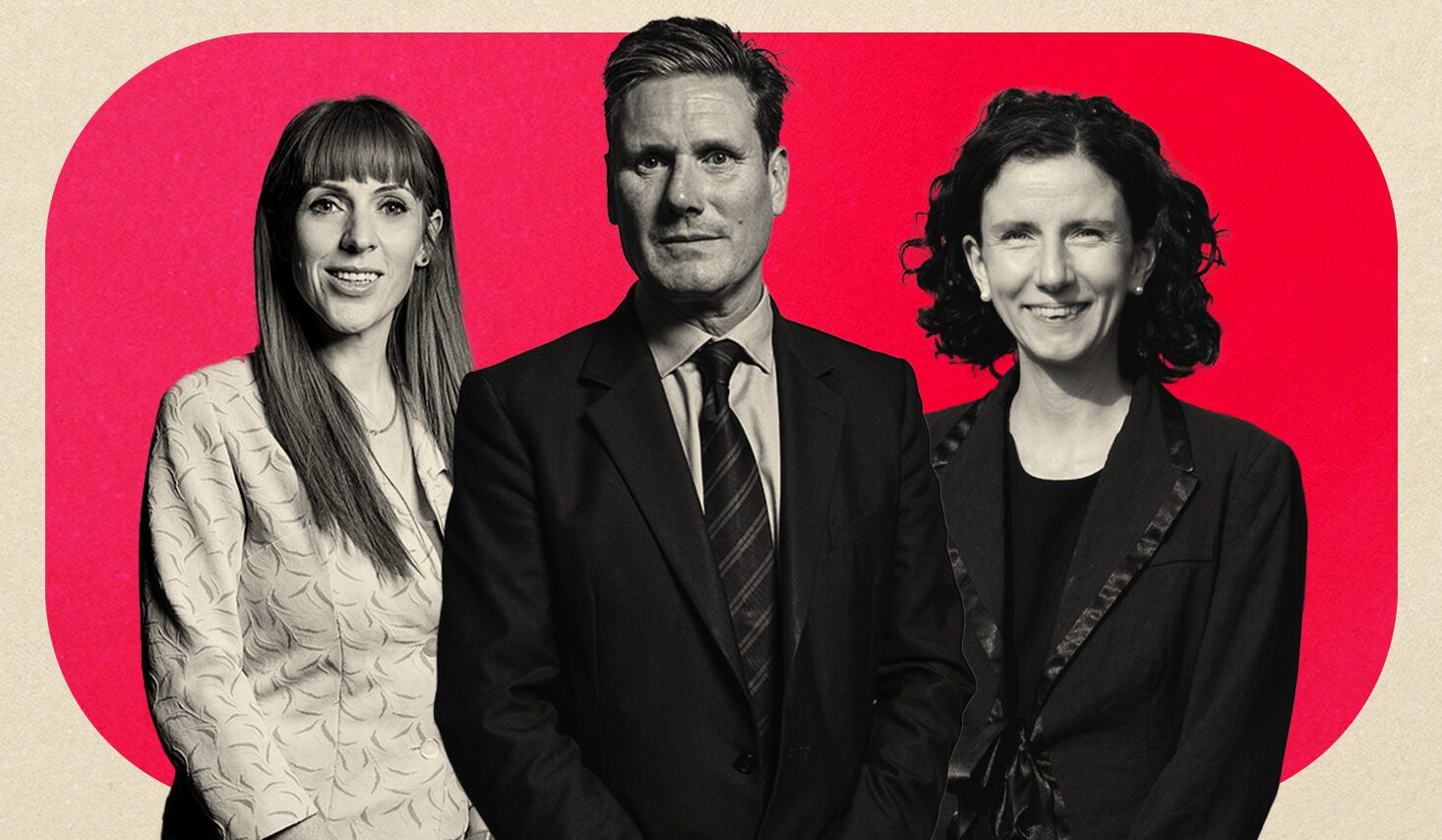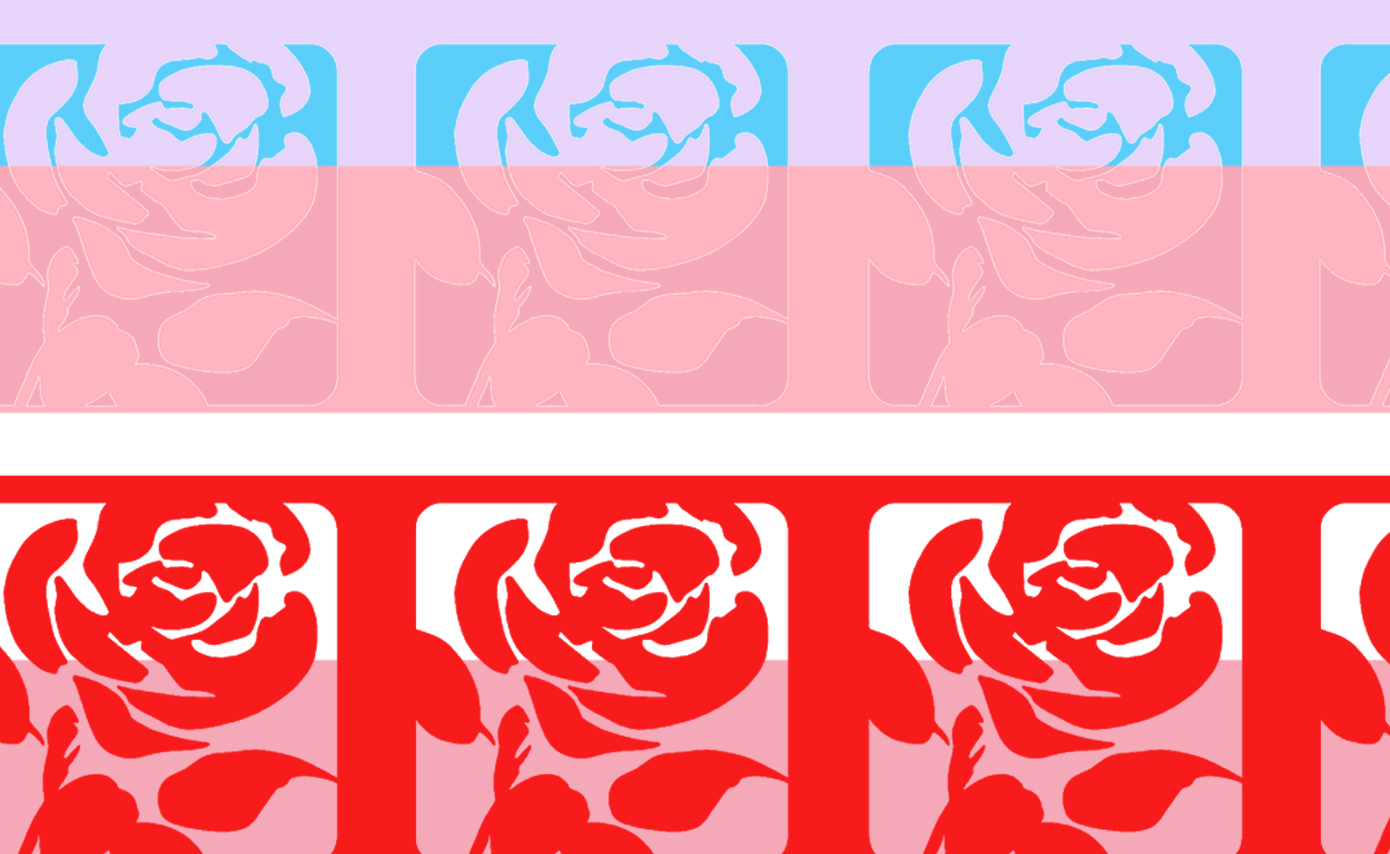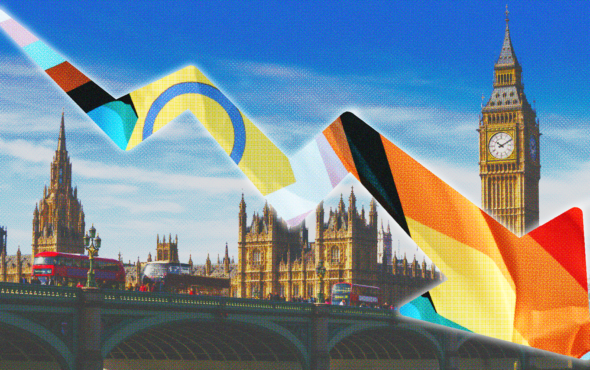
The seeds of electoral campaigns are beginning to be sewn as the predictions remain firm that the UK will have its next general election in 2024.
With the Conservatives in their 13th year as the UK’s primary governing party, their recent tenure has been filled with false promises and revolving doors, leaving many in dire need of a change at the top. The Labour Party, one would think, must be rubbing their hands together with glee.
However, it’s hard not to notice that the obvious choice of a Labour government leading the country doesn’t seem to garner the same enthusiasm many of us saw in 2019. The power of the Red Rose seems to have wilted, and begs the question: Do LGBTQ+ people still see the Labour Party as the party that speaks for them? Do they have our best interests at heart still? Will they vocally advocate and fight for trans+ people in this country?
Since Sir Keir Starmer’s election as Labour leader in April 2020, many have commented on his consistent nudging of Labour’s political stance over into the centre ground. His energy and focus is similar to that of former Prime Minister and Labour leader Tony Blair, with Starmer even quoting him in his Labour Party Conference speech back in September 2022. Furthermore, Labour’s position in the polls continues to rise, with the 2022 local elections seeing Labour gain the most control over local councils in England.
The question still remains though: is this slow and steady rise for the Labour Party the result of an impassioned and stoic leader with a clear vision for the future? Or simply because the Conservative Party have performed so atrociously that voters are desperately seeking the next available option, no matter what their political opinions are?
Is this going to be a Labour Party that’s going to be for us, against us, or more dangerously, ambivalent to us?
Amongst the LGBTQ+ community specifically, many would also ask, at what cost has this popularity come at? A lukewarm opposition during a time when trans+ people are often unwillingly at the forefront of many political conversations, and a 48% increase in Hate Crime in England and Wales since the last election, doesn’t leave many LGBTQ+ feeling optimistic or hopeful that Labour are going to be the party to speak vocally on those issues.
“We have seen time and time again from the ‘new’ New Labour front bench, this party line not to get involved or be held accountable for anything that they might believe could forward the rights of people from our community,” shares artist and broadcaster Scottee, who has previously directly engaged with the Labour Party on LGBTQ+ issues.
As someone who was 12-years-old when the Labour Party was in power in 1997, Scottee highlights how that version of the party under Tony Blair, despite its flaws, was differently aligned with the LGBTQ+ community. “There was an agenda on the table that, I hear from queer elders, was in collaboration with queer activists and community organisers [in 1997]. It was asking the community ‘what did they need?’. The equity, or the sum of the equity that is afforded to me in society is largely because of a Labour government.”
Starmer’s predecessor Jeremy Corbyn, who was recently barred by the current leader from running for the party in the next general election, appeared to have a vision for LGBTQ+ rights. In his 2019 manifesto he was clear about what he would do for LGBTQ+ people in the UK, including introducing an LGBT+ Ambassador in the Foreign Office, as well as plans to introduce self-ID for trans+ people.
“As a community organiser, I have been invited into Labour circles,” continues Scottee. “I was very much invited into Jeremy Corbyn’s version of Labour, which invited community leaders and organisers around the table. I witnessed a version of the Labour Party, leading up to the 2019 General Election, that was talking about ‘conversion therapy’ and the rights of trans people and wanted to progress our rights.”

Scottee adds: “Now, do I think a Labour Party under Sir Keir Starmer is against me? No. Do I think a Labour Party under Sir Keir Starmer is for me? Equally No. The current Labour Party stance on the progression of the rights of LGBTQ+ people is very plain to see. It says nothing. Do nothing, don’t commit to anything, don’t rock the boat because we want to get into power. Is this going to be a Labour Party that’s going to be for us, against us, or more dangerously, ambivalent to us?”
I can’t help but feel that Scottee’s words echo the dual mindset many LGBTQ+ people have of mild gratitude that the Conservative Party may lose the next General Election, combined with disappointment that it’s with a tepid opposition that doesn’t want to stick its head too firmly above the parapet.
Despite this worrying picture, Starmer has mentioned publicly that if he were to become Prime Minister in 2024, he would ban so-called ‘conversion therapy’ in all its forms, as well as pledging to create an LGBT+ Rights Envoy. On the Gender Recognition Act, he expresses a desire to ‘modernise’ the process. GAY TIMES reached out to LGBT+ Labour for comment, however they didn’t respond to our request.
Conversations on trans rights appear daily across the UK, often as a political dog-toy, being destroyed and shaken within an inch of its life. Despite trans+ people’s desire to live peacefully, creatively and happily in their respective day-to-day lives, political leaders are now reductively expected to explain what they believe ‘a woman is’, after Trans Exclusionary Radical Feminists have spent the past decade hijacking conversations on transness in all echelons of society.
For many, this was the turning point in their dissatisfaction with Keir Starmer. In October 2022, during an interview with Mumsnet founder Justine Roberts, he shared his view on consent when it comes to the care of trans people aged 16 and under.
“We all know what it’s like with teenage children. I feel strongly about this. This argument [that] children [can] make decisions without the parents is one I just don’t agree with at all,” he stated. It’s a somewhat vague, yet equally clear assumption that the leader of the opposition has in fact absorbed falsehoods about what the reality is like for trans+ young people in the UK today. An insight into his empathetic capabilities, perhaps.
Trans people are being left in limbo for years, with a devastating impact on their mental health and their ability to live their lives as they would want. This must be tackled as a priority.
As many pointed out on Twitter, including Helen, an online advocate for trans+ young people, as well as political commentator and author Owen Jones, medical intervention in the UK doesn’t happen without support from a parent. Hence no young person, by their own volition, is able to access the NHS for puberty blockers without parental support. This rebuttal by the very community being discussed exemplifies how politicians of all flavours feel that it is their duty to ‘speak up’ on issues surrounding transness in order to ‘protect’.
If this were true, then in order to ‘protect’ feminism, or ‘protect’ women, surely the leader of the opposition would need to possess factually correct information on the process of accessing gender-affirming healthcare in the UK, rather than information shared with him from those inherently against the very existence of trans+ people?
For me, as an ardent Labour supporter and trans+ person, this was when I noticed the tide turn, and was in fact the inspiration behind this feature. I wanted to know whether or not LGBTQ+ people were still willing to stand by the Labour Party moving forward?
When speaking to GAY TIMES readers online, 590 people responded to an online poll asking them if the Labour Party still speaks for the LGBTQ+ community. 70% of respondents said no, with 11% saying yes, and 19% undecided. That’s a significant percentage of people saying that the party doesn’t speak for them. It’s important to recognise that although this information may make it seem obvious as to one’s personal political allegiances, it doesn’t equate to the loss of a vote. With tactical voting being commonplace and a first past the post system used in the UK, many people will continue to vote strategically to ensure the party they do not align with, doesn’t win.
Equally, many LGBTQ+ people do support the long term strategy of the Labour Party, and its ability over the past 12 months, to be seen as a credible and potentially threatening opposition.
Despite what has been a potentially worrying period for the Labour Party’s LGBTQ+ optics, many Labour MPs continue to stand firm and tall in their vocal support for LGBTQ+ people across the UK. Examples include Olivia Blake, Labour MP for Sheffield Hallam speaking in the chamber during LGBTQ+ History Month, acknowledging that she hopes in 50 years time when “openly gay, lesbian, bi, transgender, queer, non-binary people stand up in parliament, they can look back at our speeches and say ‘how horrifying that in 2023 politicians were standing up and saying this’.”

A long term ally and vocal opposition member, Nadia Whittome MP, spoke to GAY TIMES about her experience of speaking up for LGBTQ+ rights in the House of Commons. “I’m always bowled over by the reaction from the trans community when I raise issues impacting them in Parliament. All I’m doing is my job – representing people in my constituency and the country more widely, particularly those who are marginalised – but the level of thanks I get demonstrates just how hostile the political climate is towards trans people,” she said.
Over the years, Nadia’s audible support in Parliament, as well as through social media, has seen her star rise within the LGBTQ+ community. A firm figure with a strong and authentic voice, Nadia regularly speaks up for the trans+ community in what is often a silent room.
“On social media, some of my posts attract transphobic comments,” she tells me. “I avoid reading them, but I feel terrible for trans people who see them. I’m heartened, though, that these comments do not seem reflective of the attitudes of the people I interact with in my constituency, with complaints about my work on trans rights rare and far outnumbered by supportive emails from trans people and allies.”
I wanted to find out more about the wider landscape of the Labour Party. For many, seeing people like Nadia as a vocal ally can leave us wondering what the rest of the party actually thinks when they often remain silent, or speak to the middle ground – appeasing both trans critics as well as trans advocates.
“Labour has committed to demedicalising the process of obtaining a Gender Recognition Certificate and implementing a trans-inclusive ban on ‘conversion therapy’ without loopholes,” Nadia says. “We’re still a while away from a general election so the Party is yet to unveil its manifesto, but I’ll be pushing for it to include policies that would make a real difference to trans people’s lives. In particular, I want Labour to commit to reforming the system for accessing gender affirming healthcare, to remove barriers and reduce waiting lists. Trans people are being left in limbo for years, with a devastating impact on their mental health and their ability to live their lives as they would want. This must be tackled as a priority.”
Nadia’s commitment to consistency in not forgetting about trans+ people, and ensuring that she uses her position in government to push for trans-inclusive and trans-progressive policies, is why so many LGBTQ+ people have faith in those who speak up.
LGBTQ+ people often exist in a vacuum, with our voices taken away by straight cis-focused journalists who want to discuss transness, or queerness, as an other rather than a collective. They want to dissect it from afar, rather than absorb themselves in what it means to actually be a part of the community.
Whittome, and many other MPs within the Labour Party such as the aforementioned Labour MP for Sheffield Hallam Olivia Blake, the Labour MP for Coventry South, Zarah Sultana, Shadow Secretary of State for Women and Equalities, Annelise Dodds, and Deputy Leader of the Labour Party, Angela Rayner, understand the importance of vocalising support for those who are othered. Support has to be seen to be believed – it can not just be kept in the back pocket, or used when it is tactically beneficial.
At a time when violence against LGBTQ+ in the UK, and across the world, is felt within our consciousness and body every single day, silence does still in fact equal death.
But the future looks bright, and potentially red for the UK. With current polling from YouGov showing that if there were an election tomorrow, Labour would receive 50% of the vote, leaving a mere 22% to the Conservatives, it looks promising. A win that many people have hoped would become a reality for decades.
But in order to re-galvanise those from within the LGBTQ+ community who feel lost, the Party must do better than just aspiring for reform. It must speak up, speak out and speak alongside LGBTQ+ people day after day and week after week.
It has only been a few years since a glimmer of real progressive change felt palpable when Corbyn engaged directly with community leaders, but it feels like it has quickly evaporated. Do we think that Labour has more progressive policies that concern LGBTQ+ people compared to the Tories? Of course we do. But we are at a point where the rights, security and wellbeing of LGBTQ+ people in the UK – particularly those who are trans+ – need urgent, radical and significant change. It’s not enough to be a bit better than the opposing party. The time for strong, empathetic leadership that speaks to and for everyone is right now. Without compromise.



